Login Status
-
Free text
UPCOMING EVENTS:
 From August 18 to October 11, 2026; submissions due February 19.
From August 18 to October 11, 2026; submissions due February 19.FILE – Electronic Language International Festival is now accepting project submissions and invites artists, researchers, creators, and developers to participate in its next edition. An international reference in the fields of art, technology, and innovation, FILE will take place in … Continue reading →
 Wrocław University of Environmental and Life Sciences, 4th of Match 2026
Wrocław University of Environmental and Life Sciences, 4th of Match 2026The international conference “Cross-border cooperation in the era of challenges and transformation – space, energy, climate, culture” will be held on 4 March 2026 at the Wrocław University of Environmental and Life Sciences, in Wrocław, Poland. The conference will explore key issues facing border regions, from … Continue reading →
Topic: digital archive
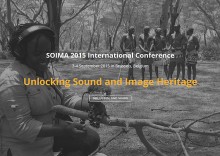
KIK-IRPA (the Royal Institute for Cultural Heritage in Belgium), BEELD EN GELUID (the Netherlands Institute for Sound and Vision) and Packed, are partners for the SOIMA 2015 International Conference which takes places on 3& 4 September in Brussels. This is an international conference on ensuring a safe and creative future for sound and image heritage. Continue reading
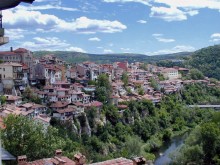
Antonella Fresa, PREFORMA Technical Coordinator, has been invited by the organisers of the Fifth International Conference on Digital Presentation and Preservation of Cultural and Scientific Heritage to present a keynote talk on the experience in the PREFORMA project Continue reading

“From digitization to preservation, creative re-use of digital cultural content, and citizen participation” is the tile of the DH2015 Panel which will feature PREFORMA together with other EU projects, fostering a debate to understand the path towards a more advanced society, that makes use of the full potential of digital technologies to foster cultural and societal progress. Continue reading

‘All for One – One for All: Common Concerns – Shared Solutions’ is the title of the IASA 2015 Conference, organised in Paris by the International Association of Sound and Audiovisual Archives. The paper “MediaConch: An open source audiovisual file conformance checker” has been accepted and will be presented by MediaArea. Continue reading

The 2015 FIAT/IFTA World Conference – Audiovisual Culture, a bridge to the future – will take place in Vienna from October 7 until October 10. This year’s conference will provide a unique occasion in which archives can discuss & learn about the many challenges and innovations for archives in their quest towards the future. Continue reading
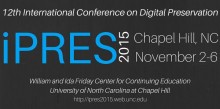
On November 6th, ArchivesSpace, University of Michigan, University of North Carolina, Educopia Institute and Internet Archive are running a workshop called “Using Open-Source Tools to Fulfill Digital Preservation Requirements”. The workshop offers a space to talk about open-source software for digital preservation, and the particular challenges of developing systems and integrating them into local environments and workflows. Continue reading

The annual AMIA Conference is the largest gathering of motion picture and recorded sound archivists and interested professionals, involving every year more than 550 attendees from the world’s major media, library, university, military and other institutions. The paper “Validate Your Digital Assets: PREFORMA, MediaConch and File Compliance” has been accepted and will be presented by MediaArea and NISV. Continue reading
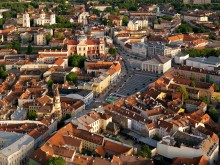
PREFORMA project has been invited to disseminate its results and papers via the eChallenges e-2015 Conference & Exhibition organised in Vilnius, Lithuania from 25 – 27 November 2015 with the support of the European Commission. Continue reading

Content in Motion: Curating Europe’s Audiovisual Heritage is the second and final international conference organised by EUscreenXL. During two eventful days the EUscreen network will involve archivists, curators, broadcasters and researchers to discuss the benefits and challenges arising from the openness of archives and collections in the digital age. Continue reading
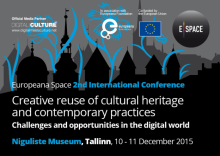
Creative reuse of cultural heritage and contemporary practices – hallenges and opportunities in the digital world is the second international conference of Europeana Space. A delegation of PREFORMA partners will attend the Conference, organized in Tallinn on 10-11 December 2015 by the Estonian Ministry of Culture, to discuss possible cooperation opportunities between the two projects. Continue reading
































